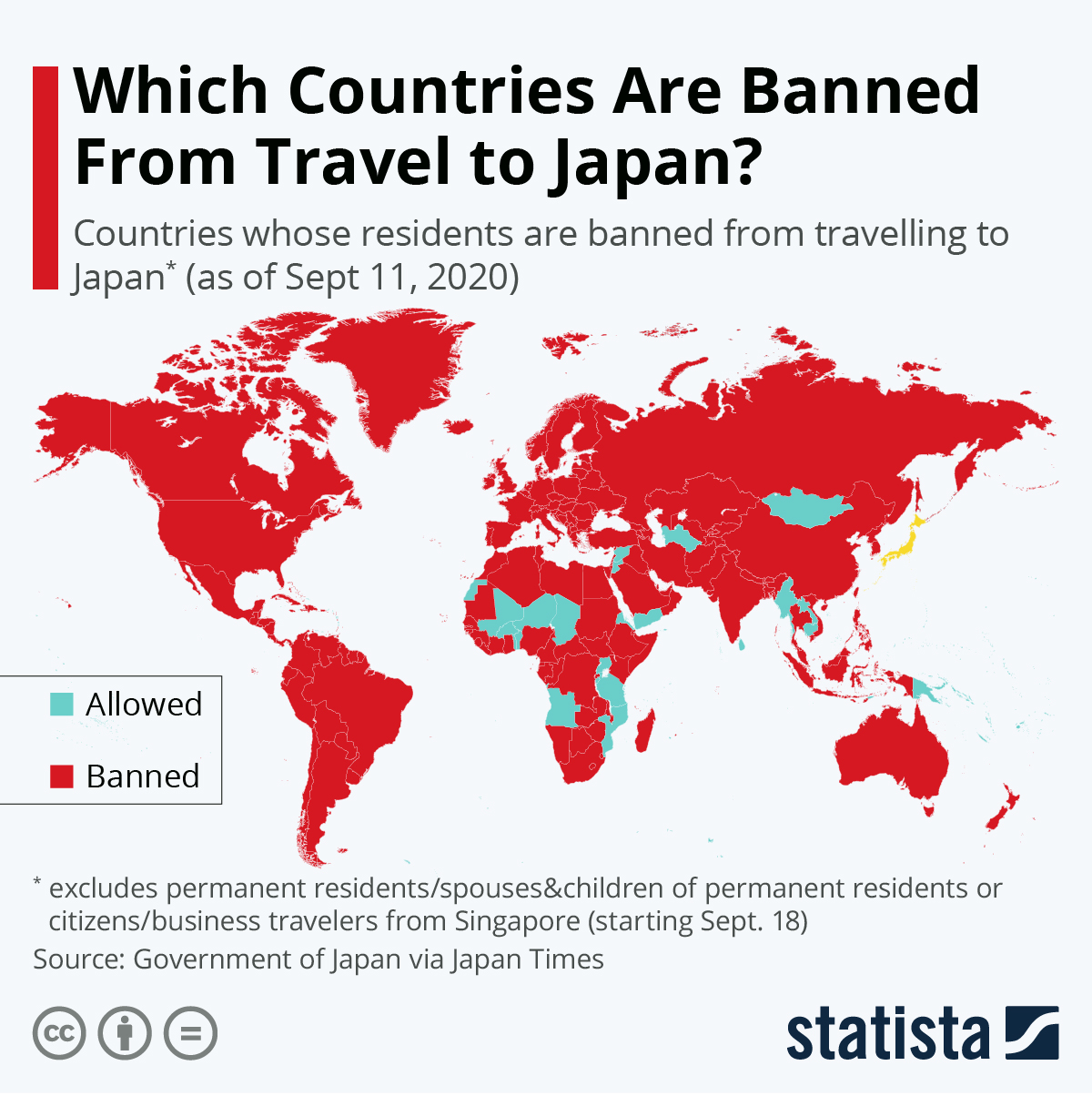In April, Japan placed a travel ban on over 100 countries. This means that even if you are from one of the countries on the list, you couldn’t visit home and come back to Japan. Yes, even foreign residents.

I’m an American citizen who is a Japanese resident. This means that while maintaining my status as an American, I’m given permission to live and work in Japan. I’m currently on a 3 year visa (my second 3 year visa, which renewed in July).
Why is this bad?
Japan is one of the few countries that treated its foreign residents differently from its nationals. America has also done this to some extent, so I’m actually involved in two different countries which discriminated against non-nationals. You may be thinking “how is that discrimination? If you aren’t a citizen of that country, you shouldn’t have the same rights.” But is that true? I live and work in Japan. My life is here. I pay taxes. My health insurance is through the Japanese government. I arguably have more benefits from and responsibilities to the Japanese government than I do to the American government. So why should I be treated any differently from a Japanese person who does the same things I do in this country?

The biggest downside to this for Japan is that they hurt their international reputation. Foreign residents now feel less confident that the government they are paying taxes to has their best interests in mind…or has them in mind at all, for that matter. Foreign owned companies are now more wary to do business with and in Japan due to the fear of another pandemic costing them billions of dollars. And the list goes on…
What is Japan doing now?
About a week ago, though, an announcement was made that Japan was finally going to ease travel restrictions on foreign residents. Starting in September, they are to be treated the same as Japanese nationals. They’ll be required to take a PCR test upon arrival, and if they test negative, they’ll be required to self-quarantine for 2 weeks and monitor their health.
This sounds great! But there will definitely be a lot of paperwork involved. And you have to get permission before leaving the country, leaving a lot of grey area and room for manipulation. As for the re-entry requirements, the biggest downside is that if you don’t pass the test, you won’t be allowed re-entry into the country. Not even to go to a hospital. The problem I find with this is that I only have health insurance in Japan…if I need a hospital, I need a Japanese one. I guess I’ll have to as immigration about that, too.
The verdict?
Everything is still so unclear and confusing. And there are still a lot of things to be concerned and wary about. All in all, it’s a step in the right direction. I understand the need for caution in this global pandemic, but I think that treating nationals and foreign residents differently was a mistake that I hope Japan learns from and doesn’t repeat in the future.
I’m still trying to figure out exactly what all of this means, but for now I’m hopeful that I’ll actually be able to see my family again sometime soon.
Until next time!! xx